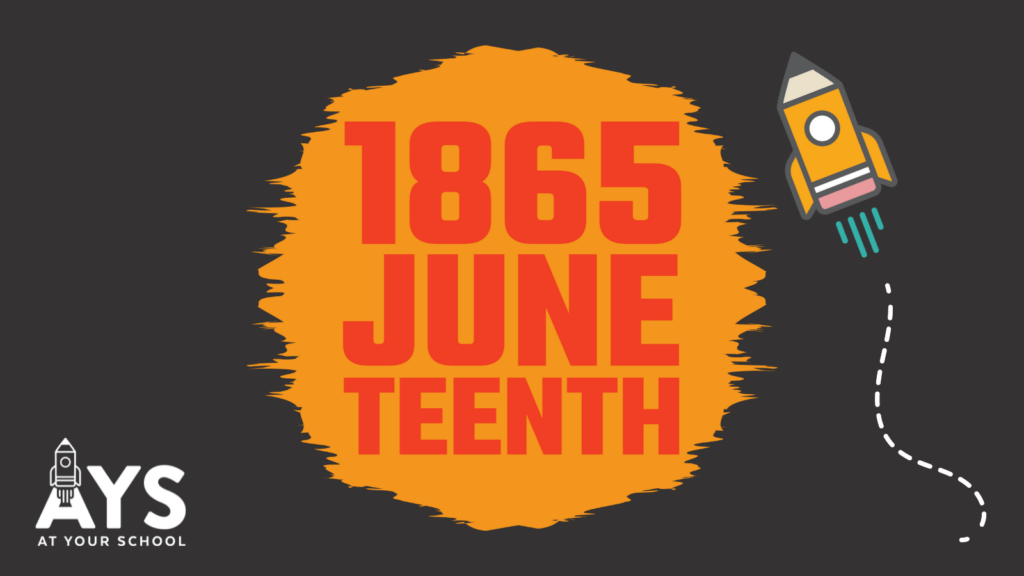
Juneteenth has been a recognized federal holiday since 2021, but why and what does celebrating the day look like? We’re glad you asked!
Juneteenth is a holiday commemorating the day, June 19th of 1865, when slaves in Texas learned about their freedom – more than two years after the Emancipation Proclamation went into effect (January 1st, 1863). It’s an important holiday to note, because it reminds us that the process of ending slavery was not a one-time, hard stop in our nation and that, in many ways, we are still addressing the consequences of our history.
Juneteenth is both a time to reflect and a time to advocate for recognizing historical and ongoing injustices Black communities experience. Honoring the day also presents an opportunity to discuss its purpose with your children. Below are a few steps to sharing the significance of Juneteenth with elementary school-aged kids, and some fun activities to help celebrate together.
- Make sure you know what you’re talking about. This doesn’t mean you need to be able to write an essay on the topic. Just familiarize yourself with the history and importance with a couple of the many books, TV shows, articles, and podcasts available, and know that it’s okay to say, “I don’t know,” then look it up if your child asks a question you’re unsure about.
- Use age and developmentally appropriate language and media to help share. We live in the age of technology, and kids consume a little bit of everything on the internet. PBS Kids’ Juneteenth video is quick, accessible, and helps explains the significance of the holiday in an age-appropriate format.
- Highlight the importance of freedom. Juneteenth marks our country’s second Independence Day, and its legacy shows the value of never giving up hope in uncertain times.
- Celebrate as a family. Make a Freedom Flag, cook a Juneteenth meal, take an online lesson, or attend a local event together!
Remember, it’s not too soon, and it’s never too late to have open conversations about history and current issues. The first eight years of a child’s life are when they build the foundation for their understanding of the world and their attitudes towards people in it. Complex stories of history will be easier for your young learner to grasp when you take the time to explain new words and emphasize the topics young children can relate to, like love, fairness, sadness, and collaboration. Check out activities to do as a family in honor of the holiday here.
